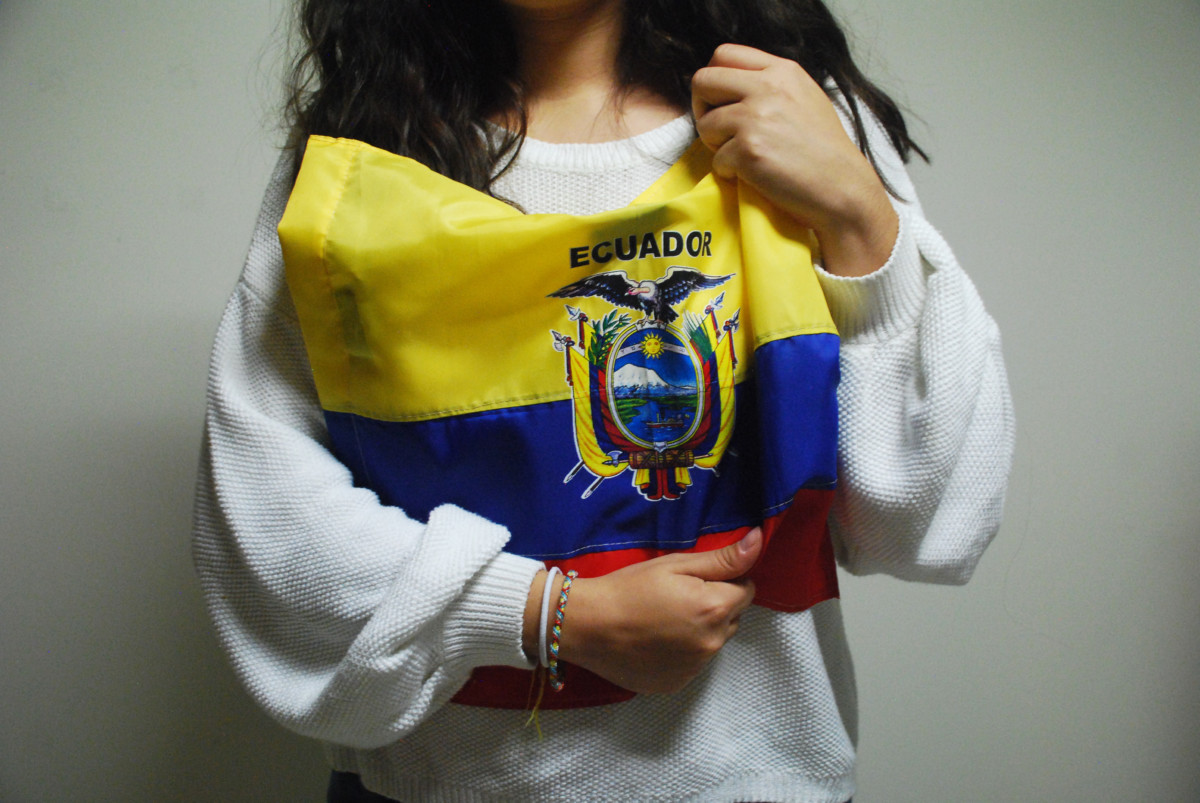Third-year St. Thomas University student Emilia Gutiérrez was in the middle of class last week when a notification popped up on her phone screen. She picked it up and saw something so unbearable she had to leave class to cry outside.
It wasn’t the first time Gutiérrez had heard about civil unrest in her home country, Ecuador. But the latest update in the onslaught of notifications on her phone caused her to feel overwhelmed.
“I was shaking,” she said.
“I was like ‘Why am I sitting here learning about [Karl] Marx when people in my home country may be dying?’”
In Ecuador, gas has been subsidized for people since the 1970s. On Oct. 1, Ecuadorian president Lenin Moreno announced austerity measures as part of an agreement with the United Nations’ International Monetary Fund that seeks to reduce spending and increase income to fight Ecuador’s debt. Elimination of the subsidy was one of the measures, which made gas prices rise from $1.85 to $2.30 USD per gallon and diesel prices more than double.
But, part of the population, especially Indigenous people, bus drivers and some students, disagreed with the economic measure.
The country experienced more than a week of protests that left seven dead, and over 2,000 detained and injured.
The capital city of Quito was the main battlefield. Gutiérrez said it was hard to check the news. She was constantly worried and more anxious than usual.
“It was hard to do homework and I know a lot of friends from my home country, some of them couldn’t do any work,” she said.
Vandals took advantage of the country’s instability and destroyed some of the city’s infrastructure. Gutiérrez’s grandmother lives in front of a news outlet that was bombarded by them. A truck in the building’s parking lot was set on fire and windows in the building were broken.
“My grandma was able to see the smoke from the place being burned up and that was really scary,” she said.
In her Crimes Against Humanity human rights class, Ecuador wasn’t discussed. In a different class, Gutiérrez said her friend was brushed off by their professor when they tried to explain what was happening with Ecuador.
Gutiérrez felt like no one cared.
International student advisor Carrie Monteith-Levesque organized a group counselling session for Ecuadorian students at STU who wanted to talk about the topic. Eleven Ecuadorians attended.
Monteith-Levesque said an upper-year Ecuadorian student told her about what was happening in Ecuador and how it was affecting her. She thought if it was having an impact on her, then it would be having an impact on others. She looked at how many Ecuadorians attend STU and reached out to counselling services.
Gutiérrez said it was nice to hear she wasn’t alone. She was finally surrounded by people who were going through the same thing, making her feel more at home. It felt like what she was going through mattered and she didn’t have to pretend she was okay.
In the session, upper-year students also offered support to first-year students.
“Really, [Ecuadorian students] are the best support for each other because they are all going through it at the same time,” Monteith-Levesque said.
“They laughed and they cried. It was very difficult … but I think that students really benefited a lot from having each other.”
Monteith-Levesque said it’s important for students to feel like people care about what’s happening in their country and their life.
She said international students already experience a big transition leaving their home and families behind. When a country is in civil unrest, it adds a whole other level of stress, anxiety, guilt and fear.
“You know, ‘I’m here, my parents are home,’ that kind of thing,” she said.
Daniella Borja is another Ecuadorian student who attended the counselling session. The fourth-year student is from Guayaquil, a coastal city in Ecuador.
She cried about what was going on Ecuador for the first time in the group session.
“They felt the same way as I did so I felt safe to cry,” she said.
During the week of the protests, Borja couldn’t focus on doing homework. She was worried about her family. Her dad owns a company that makes ceramic blocks and he still went to work every day along with the workers because his family needed the money.
“[My family], we are his priority, so he was still going even though it was very dangerous,” she said.
Borja tried to block the thoughts while working on assignments because she didn’t have time to think about what was going on in Ecuador. She said she was always worried but had to push it back.
Borja said she felt hurt she couldn’t do anything about it.
In the counselling session, another student from Guayaquil “balled his eyes out.”
“He was like, ‘I’m just angry, like, this shouldn’t be happening in my country?’ You could feel in his voice he was completely transparent and real and you could feel his emotions,” she said.
Both Borja and Gutiérrez feel better now that protests have ended and protesters are trying to reach an agreement with the Ecuadorian president.
Gutiérrez said Canadians should cherish their democracy and vote to make sure what happened in Ecuador doesn’t happen to them.
She also said people should be conscious of the fact they get to live in their native country, which isn’t the reality for everyone.
“Hearing your parents say that you can’t go home anymore, that you should stay away because there is no future in your home, is hard.”

